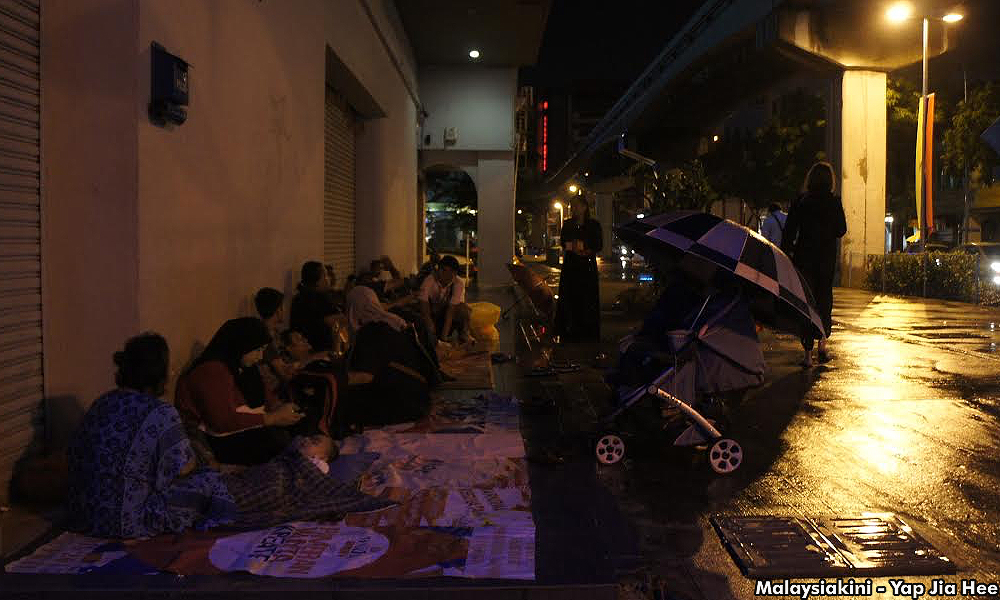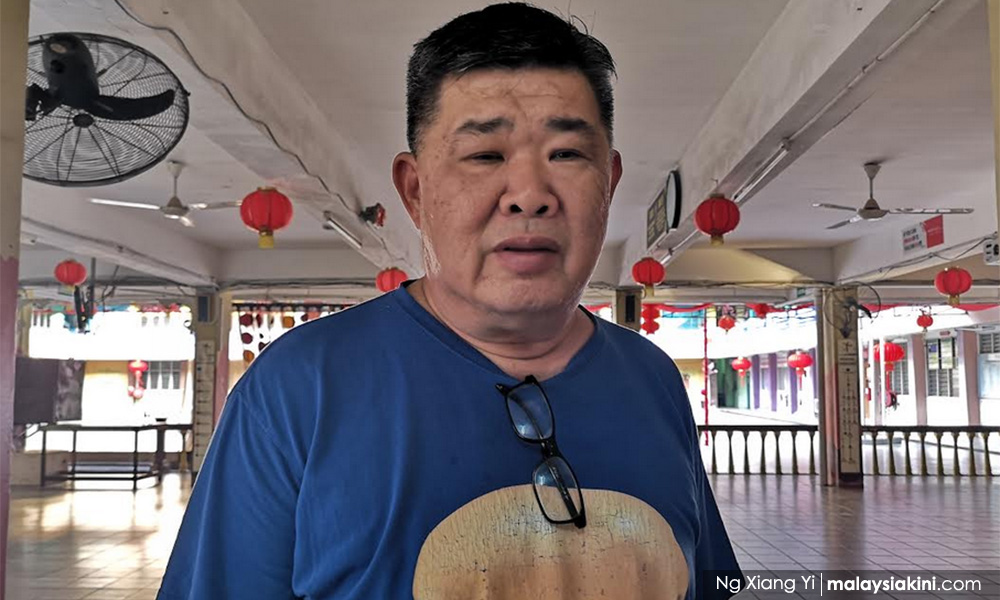People who have fallen in hard times get an immediate response for help from the welfare or religious departments only after their stories are shared on the internet.
Is sharing one's suffering in public the new norm for getting immediate help for individuals, struggling families, single mothers, and the homeless?
It is unconscionable to subject them to a further loss of dignity.
Applying for aid involves a mountain of form filling, identity verification, and a minimum waiting time of three months before the recipient receives an answer. Those who are rejected are never told why they were turned down.
Last week, around Hari Raya Aidilfitri, we read about various people for whom the holiday was temporarily put on hold.
A serving soldier contracted pneumonia, was discharged from the army and ended up homeless. He served his nation, but the nation turned him down when he needed its help the most.
A man abandoned his wife and their two children. Soon after, the wife's landlord evicted her. The single mother thought herself lucky to be able to share a "home" in a building which had been specially converted into a swiftlets' house.
In one fishing village near Lumut, a woman said that ongoing beach reclamation projects, poor yields, and inclement weather meant that her father's daily catch could not sustain the family. Their house was often flooded, and there was no money for medicine.
The soldier was petrified of losing his disability benefit and ashamed to tell his family of his predicament. The single mother was given government help of RM250 per month. The fisherman's family said that various agencies had rejected their requests for aid.
After their stories went viral, the single mother was contacted by the Perak religious authority and then was flooded by numerous offers of help from concerned citizens.

Poor are failed by the lack of leadership
Many questions remain unanswered. What happened to zakat money, which we are told will help the poor? How does Jakim spend its billions of ringgits? Why is it so difficult for these people to get help?
Why do the religious authorities react only after stories about the poor become viral? Why is the Welfare Department lacking funds? Why are NGOs doing the government's work for them?
The single mother cannot survive on RM250, but will welfare officials try to survive on this pitiful amount to see if it is adequate? Is the former husband paying any maintenance? Will the Syariah Court track him down and make him pay up?
Friends who work for NGOs claim that the poor are failed by the lack of leadership in government institutions.
Officials placed more importance on the department or their own key performance index (KPI). Instead of helping the poor, these officials did just enough work to obtain a decent KPI. A good KPI would enable them to receive better perks, an improved performance bonus, or even a promotion. Helping the poor is almost considered an afterthought.
The attitude of the officials who disburse aid needs to be addressed. They act as if the money intended for the poor is their own. The officials would rather a sum of money, for example, RM10,000, be shared with several people, whereby each person only receives just RM100.
The officials want to be seen as helping several people, and not just a few. The aid dished out is diluted simply to make the officials look good. They care only about quantity, not quality.
When a request for aid is made, a committee is supposed to meet and evaluate the individual's needs, discuss the merits of each case, and decide who gets aid. However, poor work practices, or perhaps laziness, usually means that the decision is left to one official who decides who should receive assistance.
Not everyone is literate and can articulate their needs adequately. Many of those who requested help said that government officials lacked the patience to help them understand what was needed of them. Many people are not sure how to fill in the various forms required.
'Overbearing arrogance'
The system is too rigid. If a family is given basic aid by the religious authority, it is alleged that the Welfare Department will refuse to offer additional help. A family with three disabled children will not receive disability payment from welfare because aid from the religious authority is deemed to be sufficient.
Those who were refused help are not told why they were rejected. Fewer still realise that they are allowed one chance to appeal. Many people are too meek to ask for help, especially if they fear being barked at by arrogant officials.

Government officials who act with overbearing arrogance deter many Malays/Muslims, who then seek help from church organisations or from non-Malay NGOs. They place more faith in individuals, like "Uncle Kentang", the social activist Kuan Chee Heng.
Non-Muslim/non-Malay organisations take great care not to publicise their offers of help because bigots in the community have the potential to cause trouble and turn the aid offered into a racist or religious issue. The missing pastor, Raymond Koh, helped mainly Malay drug addicts and HIV/Aids sufferers but faced allegations of proselytising.
The religious authorities are allegedly fixated on quantity. For some officials, help is allocated for converts (mualafs) only. The officials' KPI increases, and offering help, for them, is more about converting. This is not how aid should be disbursed.
In the end, where is the political will to address poverty? - Mkini
MARIAM MOKHTAR is a defender of the truth, the admiral-general of the Green Bean Army, and president of the Perak Liberation Organisation (PLO). Blog, Twitter.
The views expressed here are those of the author/contributor and do not necessarily represent the views of MMKtT.




No comments:
Post a Comment
Note: Only a member of this blog may post a comment.